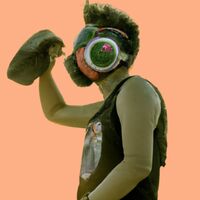Artificial Intelligence Cannot Replace the God-given Abilities of Teachers
Dr. Jessica A. Johnson
Like many educators, I am learning more about ChatGPT and its potential impact on student writing for the future. The "GPT" stands for Generative Pre-trained Transformer, and this chatbot was developed by the artificial intelligence company OpenAI. ChatGPT was made available to the public last November, and there are concerns in higher education that many students will be tempted to use this new technology to cheat. ChatGPT can crank out papers with the insertion of a prompt for an assignment. The technology can also impressively produce emails, blogs, answers to discussion board questions, and poems. Basically, as many English teachers now fear, a bot can do all of their students' homework.
Thinking about colleagues in my generation who teach in the humanities, I understand the unease that many have about ChatGPT's effect on what we consider to be the foundation of traditional writing. We've been in the digital age of the internet for quite a while, and we've tried to guard against student plagiarism as copying and pasting content or buying a paper mill essay have posed the biggest threats to English courses since the early 2000s. I remember how utilizing Turnitin.com was heavily stressed to detect internet plagiarism, although I never made a habit of using this site. It was easy for me to identify plagiarized passages in papers due to being familiar with what I like to call the ebb and flow of a student's writing. For example, if a paragraph was taken from an academic article, one of the first things I noticed was that a signaling phrase to introduce it was missing and a parenthetical reference was often omitted. I'd google a couple of lines and the article would pop up. Grammar was also a conspicuous catch, especially if a student was struggling with sentence fragments and run-on sentences. It was fairly obvious in a plagiarized paper what passages were lifted from a source when they were inserted in between paragraphs plagued with grammatical mistakes.
I have been fortunate to not have numerous plagiarism issues throughout my years of teaching English composition. I believe one of the reasons for this is that I emphasize to my students that their voices are unique. "There's no need to steal someone else's words and pass them off as your own," I explain, "because no one can speak for you in the distinctive voice that you have." I accentuate the significance of one's voice in my classes because it's also one of the most important traits for me as a journalist, and even technology as remarkable as ChatGPT cannot replicate genuine expression that comes from the soul. When I sit down to write my weekly column, I often meditate on the latter part of Psalm 45:1, which says, "... my tongue is the pen of a ready writer," an outpouring of my creative, God-given talent. I take joy in communicating what God places on my heart regarding the topics I explore and share with readers, and I also take joy in seeing my students discover their exceptional voices from their own research. Every semester I encourage students to create their own primary sources by doing personal interviews and conducting surveys. I recently graded an essay on Gen Z and education where one of my students focused on the need for more teacher training to aid children with learning disabilities. This student interviewed her younger brother who has ADHD, and it was evident that she was fully invested in her topic due to having a personal connection with it. This enhanced her analysis of the secondary sources she cited in her paper. A bot would not be able to authentically articulate her sincere concern for her brother's educational needs.
As ChatGPT continues to evolve, educators will be exploring different ways to resourcefully implement this technology into their classrooms. Since I spend a lot of time teaching college freshmen how to do scholarly research, I can see how ChatGPT could be used for assignment prompts with questions to help students better understand major points in peer-reviewed articles. The lingering concern in the humanities will continue to be students using the chatbot to write their essays, but I think a positive outcome in countering this will be teachers perfecting what they already do best, which is showing students how to hone their critical thinking abilities and how to become more information literate. Bots can automate these skills for students, but only teachers can impart them.
Dr. Jessica A. Johnson is a lecturer in the English department at Ohio State University's Lima campus. Email her at smojc.jj@gmail.com. Follow her on Twitter: @JjSmojc.
Photo by Glenn Carstens-Peters on Unsplash






You must be logged in to post stack comments. Please Login or Signup (free).